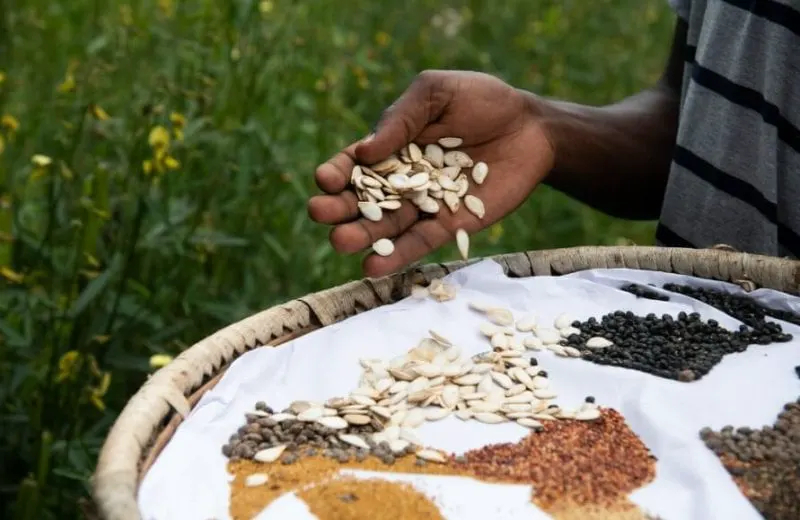Gene editing can increase yields, improve nutrition, fight climate change — and bring native species back to African agriculture
Gene editing can increase yields, improve nutrition, fight climate change — and bring native species back to African agriculture


Gene editing is making it easier for researchers to help local plants varieties adapt to changes in the local environments and provide better nutrition.
This presents a useful advantage, particularly to developing countries such those as in Africa, as it avails an opportunity to tweak indigenous varieties so they can continue to contribute to the food supply.
In most African countries, colonial powers introduced exotic crops and livestock from their native countries with the aim of improving yields and also to take advantage of certain desirable traits. Many of the local livestock breeds and plant varieties were relegated as inferior.
With gene editing, native species can be enhanced to adapt to changes in local environments. This presents an opportunity to groom local or even exotic crops for the climatic and environmental conditions that apply to specific locales while maintaining optimal production. For instance, Ghana relies on imports of apples to cater to local demand.
“Apples do not grow in Ghana, so we import them – mostly from South Africa. If we can make some changes in the apple so that it would grow in Ghana that would be great!” [researcher Samuel] Acheampong said.
This is an excerpt. Read the original post here.

 | Videos | More... |

Video: Nuclear energy will destroy us? Global warming is an existential threat? Chemicals are massacring bees? Donate to the Green Industrial Complex!
 | Bees & Pollinators | More... |

GLP podcast: Science journalism is a mess. Here’s how to fix it

Mosquito massacre: Can we safely tackle malaria with a CRISPR gene drive?

Are we facing an ‘Insect Apocalypse’ caused by ‘intensive, industrial’ farming and agricultural chemicals? The media say yes; Science says ‘no’
 | Infographics | More... |

Infographic: Global regulatory and health research agencies on whether glyphosate causes cancer
 | GMO FAQs | More... |

Why is there controversy over GMO foods but not GMO drugs?

How are GMOs labeled around the world?

How does genetic engineering differ from conventional breeding?
 | GLP Profiles | More... |

Alex Jones: Right-wing conspiracy theorist stokes fear of GMOs, pesticides to sell ‘health supplements’




 Viewpoint — Fact checking MAHA mythmakers: How wellness influencers and RFK, Jr. undermine American science and health
Viewpoint — Fact checking MAHA mythmakers: How wellness influencers and RFK, Jr. undermine American science and health Viewpoint: Video — Big Solar is gobbling up productive agricultural land and hurting farmers yet providing little energy or sustainabilty gains
Viewpoint: Video — Big Solar is gobbling up productive agricultural land and hurting farmers yet providing little energy or sustainabilty gains Trust issues: What happens when therapists use ChatGPT?
Trust issues: What happens when therapists use ChatGPT? Fighting deforestation with CO2: Biotechnology breakthrough creates sustainable palm oil alternative for cosmetics
Fighting deforestation with CO2: Biotechnology breakthrough creates sustainable palm oil alternative for cosmetics California, Washington, Oregon forge immunization alliance to safeguard vaccine access against federal undermining
California, Washington, Oregon forge immunization alliance to safeguard vaccine access against federal undermining 30-year-old tomato line shows genetic resistance to devastating virus
30-year-old tomato line shows genetic resistance to devastating virus The free-range chicken dilemma: Better for birds, but with substantial costs
The free-range chicken dilemma: Better for birds, but with substantial costs ‘You have to treat the brain first’: Rethinking chronic pain with Sanjay Gupta
‘You have to treat the brain first’: Rethinking chronic pain with Sanjay Gupta
